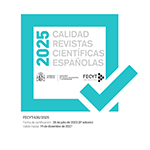Academic Freedom and 21st Century European Universities
Abstract
It is argued that university education has a moral and social function in society. Its purpose is to provide a liberal education (developing the intellect by challenging it to grapple freely with difficult ideas), the development of new knowledge and the provision of trustworthy, disinterested research. To serve society in this way safeguards are necessary: a separation from the state, giving institutional autonomy and academic freedom in teaching and research. With the rise of extreme free market capitalism and the "knowledge society", these safeguards are being eroded: national governments, partly through the ramifications of the Bologna convergence process, are in the process of moulding universities to the needs of the market, and now see the accommodation of students to the workplace as the principal, or indeed only, objective for a university education. Example of the consequences of these changes are discussed, including the corruption of research integrity and erosion of individual liberties.Downloads
Article download
License
In order to support the global exchange of knowledge, the journal Logos. Anales del Seminario de Metafísica is allowing unrestricted access to its content as from its publication in this electronic edition, and as such it is an open-access journal. The originals published in this journal are the property of the Complutense University of Madrid and any reproduction thereof in full or in part must cite the source. All content is distributed under a Creative Commons Attribution 4.0 use and distribution licence (CC BY 4.0). This circumstance must be expressly stated in these terms where necessary. You can view the summary and the complete legal text of the licence.











